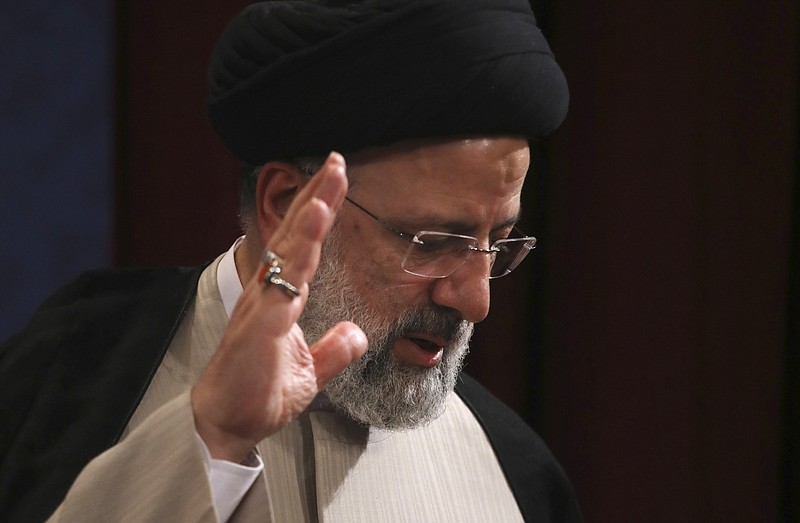WASHINGTON -- Biden administration officials are insisting that the election of a hard-liner as Iran's president won't affect prospects for reviving the faltering 2015 nuclear deal with Tehran. But there are already signs that their goal of locking in a deal just got tougher.
Optimism that a deal was imminent faded as the latest talks ended Sunday without tangible indications of significant progress. And on Monday, in his first public comments since the vote, incoming Iranian President Ebrahim Raisi rejected a key Biden goal of expanding on the nuclear deal if negotiators are able to salvage the old one.
[Video not showing up above? Click here to watch » https://www.youtube.com/watch?v=ITsSHzZBkmE]
At the same time, Raisi is likely to raise Iran's demands for sanctions relief in return for Iranian compliance with the deal, as he himself is already subject to U.S. human rights penalties.
"I don't envy the Biden team," said Karim Sadjapour, a senior fellow at the Carnegie Endowment for International Peace who has advised multiple U.S. administrations on Iran. "I think the administration now has a heightened sense of urgency to revise the deal before Raisi and a new hard-line team is inaugurated."
President Joe Biden and his team have made a U.S. return to the deal one of their top foreign policy priorities. The deal was one of former President Barack Obama's signature achievements, one that aides now serving in the Biden administration had helped negotiate and that former President Donald Trump repudiated and tried to dismantle.
Despite Raisi's impending presidency, Biden administration officials insist prospects for reaching an agreement are unaltered. They argue that Iran's Supreme Leader Ayatollah Ali Khamenei, who signed off on the 2015 deal known as the Joint Comprehensive Plan of Action, or JCPOA, will make any final decisions regardless of who is president.
"The president's view and our view is that the decision leader is the supreme leader," White House press secretary Jen Psaki said Monday. "That was the case before the election; it's the case today; it will be the case probably moving forward."
In his public comments Monday, Raisi brushed aside U.S. calls for Iran to agree to follow-on discussions on expanding the initial nuclear deal to include its ballistic missile program and its support for regional groups that the U.S. designates terrorist organizations.
"It's nonnegotiable," Raisi said.
